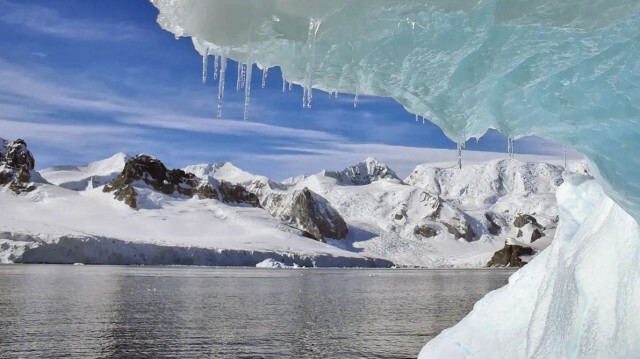
According to models, record-breaking minimum sea ice extent would be one-in-2,000-year event without climate change, says scientist
Record-low levels of sea ice were seen in the Antarctic last year as a result of climate change, scientists confirmed in a report published on Monday.
“In 2023, the area of winter Antarctic sea ice fell to the lowest measured since satellite records began in late 1978,” according to research released by the British Antarctic Survey (BAS).
Scientists have found that last year's record-breaking low would be a one-in-a-2,000-year event without climate change and four times more likely under its effects.
The exceptional low state of Antarctic sea ice indicates that it may transition to a new and lower state over the next few decades, warned scientists.
“The reduced return period in forced scenarios suggest that winter 2023's extreme low was made more likely by climate change,” noted the study.
Rachel Diamond, a lead author of the report, said that while 2023's extreme low sea ice was made more likely by climate change, it was still considered very exceptional according to the models.
“This is the first time this large set of climate models has been used to find out how unlikely 2023's low sea ice actually was,” she noted.
Diamond said the only measurements of sea ice are coming from a 45-year-old satellite, making it extremely difficult to evaluate changes in sea ice extent.
“According to the models, the record-breaking minimum sea ice extent would be a one-in-a-2,000-year event without climate change,” she added.
Louise Sime, a co-author of the report, pointed out that the impacts of Antarctic sea ice staying low for over 20 years would be profound, including on local and global weather.

